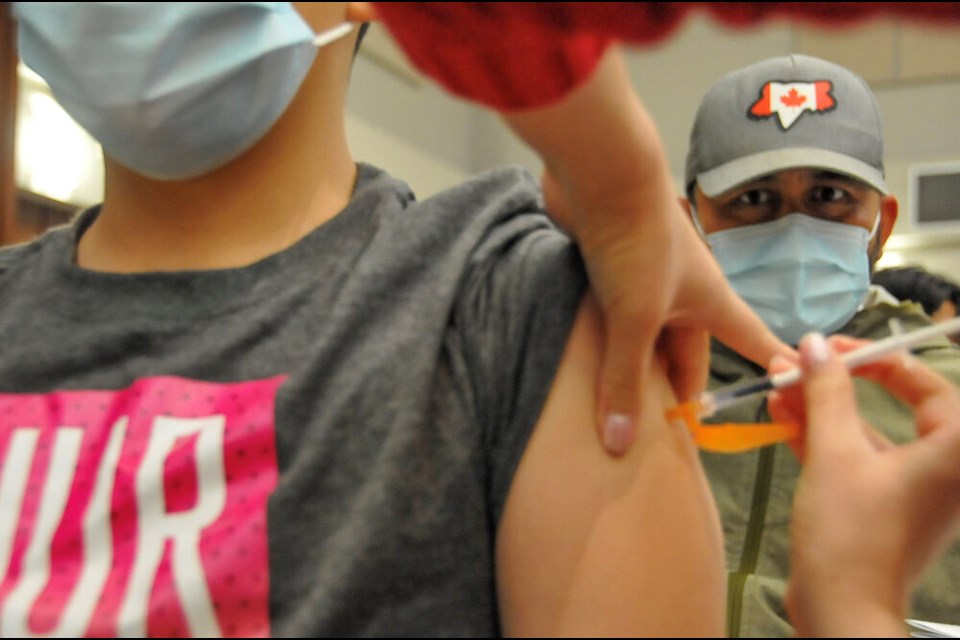Nahun Navarro and his 12-year-old son Romeo waited months to see what would happen to the vaccinated.
“All these (one and a half), two years, I haven’t felt any symptoms [of COVID-19]. But everything is changing,” says the 42-year-old father. “It’s getting hard for people to get into places.”
Navarro, who works in construction, was one of a dozen people Glacier Media spoke to outside a COVID-19 vaccination clinic at Vancouver’s Italian Cultural Centre on Thursday (Aug. 26).
Navarro says his hesitancy comes from both a fear of side-effects and concern that public life is increasingly shutting down for the unvaccinated.
“Too many people say one thing,” he says, mentioning unfounded theories that the vaccine was a way for Bill Gates to implant microchips in people’s arms.
“Everybody else says the variants are coming.”
On Monday, the B.C. government announced it would be launching a vaccine passport system that would bar unvaccinated British Columbians entrance to everything from movie theatres, concerts and sporting events to gyms and restaurants.
Anyone entering such venues will be required to show proof they have received at least one dose of a COVID-19 vaccine by Sept. 13 and full vaccination status by Oct. 24.
The plan, rolled out to protect vaccinated people from a rising number of cases, also appears to be driving the unvaccinated to clinics.
The day the vaccine passport system was announced, health authorities across the province saw daily vaccine registrations spike by nearly 175 per cent.
Within 48 hours, the number of people 40 and under registering for a vaccine more than tripled to 12,904, and those booking a vaccination slot more than doubled to 11,301.
It’s not just getting shut out of public life in British Columbia that has some worried they will be left behind.
International travel, too, is looking like an impossible proposition as countries around the world pass legislation banning unvaccinated individuals from their borders.
“I’m a little bit nervous,” says Navarro waiting for his turn. “But we need to travel.”
Trang Tran has seen the devastating effects of the SAR-CoV-2 virus up close. She recently returned from a trip to visit family in Vietnam, a country where new daily cases have climbed from the single digits to over 11,000 on Wednesday.
“They’re facing the new Delta variant. It’s crazy there,” says Tran as she stepped up to register at the East Vancouver clinic. “I actually had COVID three months ago.”
Seven months pregnant, Tran says her baby’s health has kept her from getting her first shot. But she also says all of her pregnant friends have been vaccinated and that’s put any doubts she had to rest.
In the end, Tran says health comes first. Having the option to step into a movie theatre is just one more reason the mother walked through the rain Thursday to get her first shot, she says.
Inside the converted theatre, Nahun and Romeo sit one in front of the other, nervous, waiting their turn.
“Everybody has to get it to save everybody,” says Navarro. “Is it going to hurt?”
The nurse lifts up an orange-tipped needle filled with the Pfizer-BioNTech vaccine and slips it into the father’s arm. It’s the kind of precision that only comes with months of practice.
“I didn’t feel a thing!” says the father incredulous, turning to his son. “Nothing.”
Romeo has one question before it’s his turn: “How long will it take to work?”



